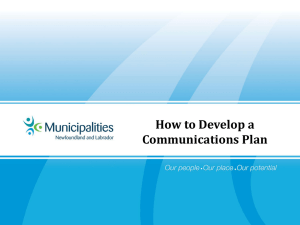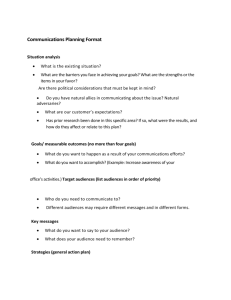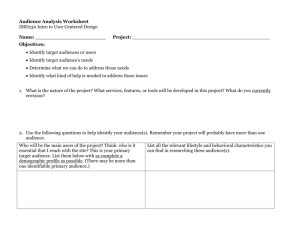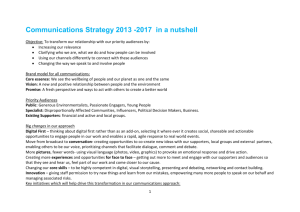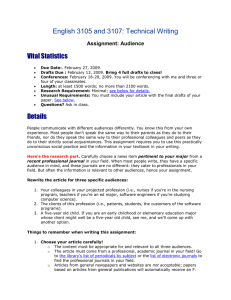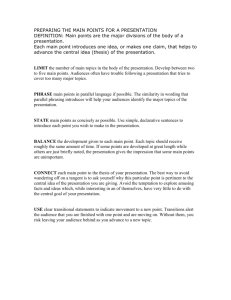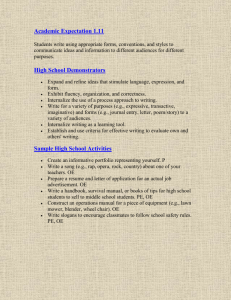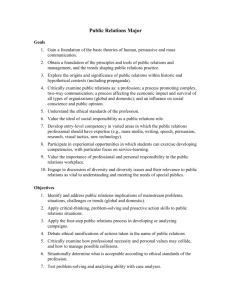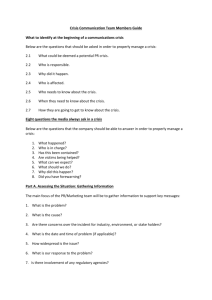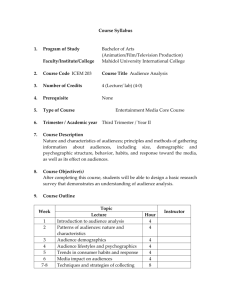1. Demographic Audience Analysis
advertisement
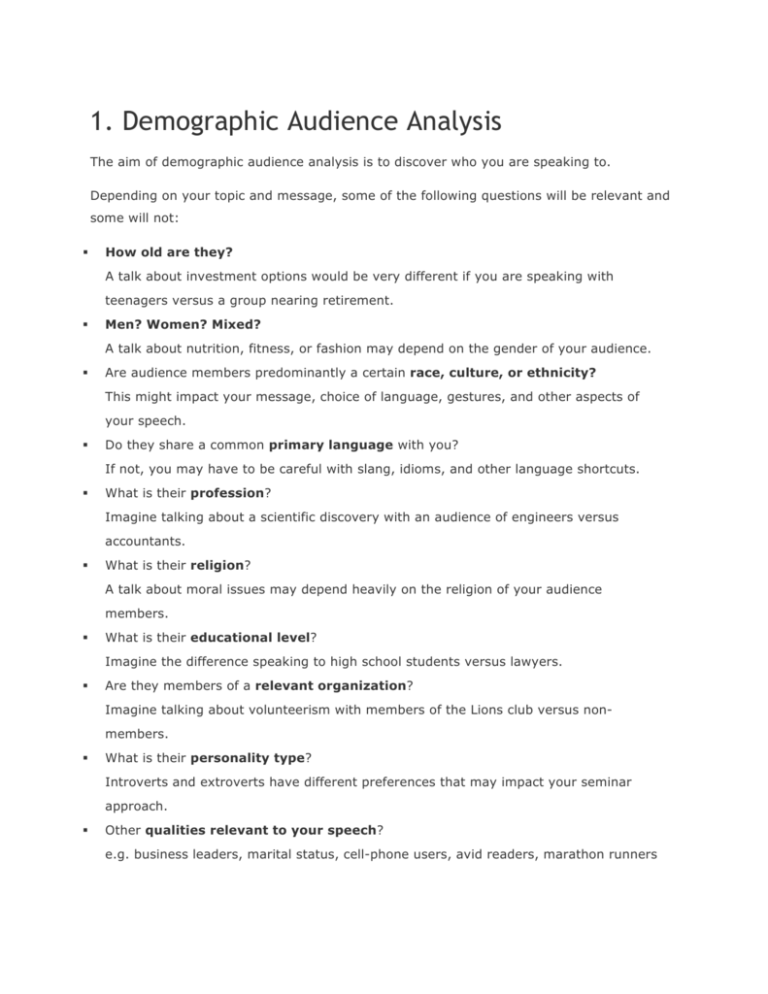
1. Demographic Audience Analysis The aim of demographic audience analysis is to discover who you are speaking to. Depending on your topic and message, some of the following questions will be relevant and some will not: § How old are they? A talk about investment options would be very different if you are speaking with teenagers versus a group nearing retirement. § Men? Women? Mixed? A talk about nutrition, fitness, or fashion may depend on the gender of your audience. § Are audience members predominantly a certain race, culture, or ethnicity? This might impact your message, choice of language, gestures, and other aspects of your speech. § Do they share a common primary language with you? If not, you may have to be careful with slang, idioms, and other language shortcuts. § What is their profession? Imagine talking about a scientific discovery with an audience of engineers versus accountants. § What is their religion? A talk about moral issues may depend heavily on the religion of your audience members. § What is their educational level? Imagine the difference speaking to high school students versus lawyers. § Are they members of a relevant organization? Imagine talking about volunteerism with members of the Lions club versus nonmembers. § What is their personality type? Introverts and extroverts have different preferences that may impact your seminar approach. § Other qualities relevant to your speech? e.g. business leaders, marital status, cell-phone users, avid readers, marathon runners All of the above analysis may be impacted by qualities of the audience as a whole: § Is the audience homogeneous or heterogeneous? It usually makes your life easier if your audience is fairly homogeneous in certain ways. For example, you can be far more technical if you are talking to a room full of engineers. Just be careful not to assume your audience members are identical — they are not. § What is the size of the audience? Larger audiences dictate many presentation differences compared to smaller audiences. In addition, larger audiences will tend to be more heterogeneous, and so you can draw fewer conclusions about them. Finally, consider how you relate to the audience with respect to several of the characteristics above: § Are you similar to your audience, or are you different? (In gender, age, profession, education level, etc.) Sometimes, it doesn’t matter. Other times, they will view you as an outsider, and that may influence your preparation. § Are they your peers? e.g. co-workers or classmates § Or are they your superiors or subordinates? Either could be good or bad… 2. Psychological Audience Analysis “Thoughtful audience analysis is one of the best habits you can develop as a speaker.” The aim of psychological audience analysis is to discover what your audience may be thinking before and during your presentation. Psychological analysis covers both the knowledge (or lack of knowledge) and the beliefs of your audience. Audience Knowledge What do they know about your topic? What don’t they know? § These are critical questions to determine the “level” at which you target your presentation. What do they want to know? What do they need to know? § It’s critical that you satisfy their expectations. Otherwise, your presentation will be seen as a failure for them. What specialized terminology are they familiar with? § Using acronyms and technical terms is okay in a presentation, but only if your audience recognizes them (or you take the time to define them). What concepts, processes, or tools are they familiar with? § Like terminology, you can draw upon these concepts, processes, and tools as you build your presentation. Consider them building blocks that are already in place before you begin. It is also sometimes useful to gauge their knowledge compared to yours: Do some members of your audience know more about the topic than you? § This is a tricky situation to navigate. Audience Beliefs Are they neutral, or are they predisposed to agree with or oppose your message? § Audiences of the three different types require three totally different presentations. What are the most important values to the audience? (Or, what are the values of § their organization?) It’s important to know what they value as these are often the best starting points upon which you can build your arguments. What problems do they have? § If your presentation aims to offer them a solution, it surely helps if they agree with you that the problem exists in the first place! FromAudience Analysis: A Guide for Speakers
